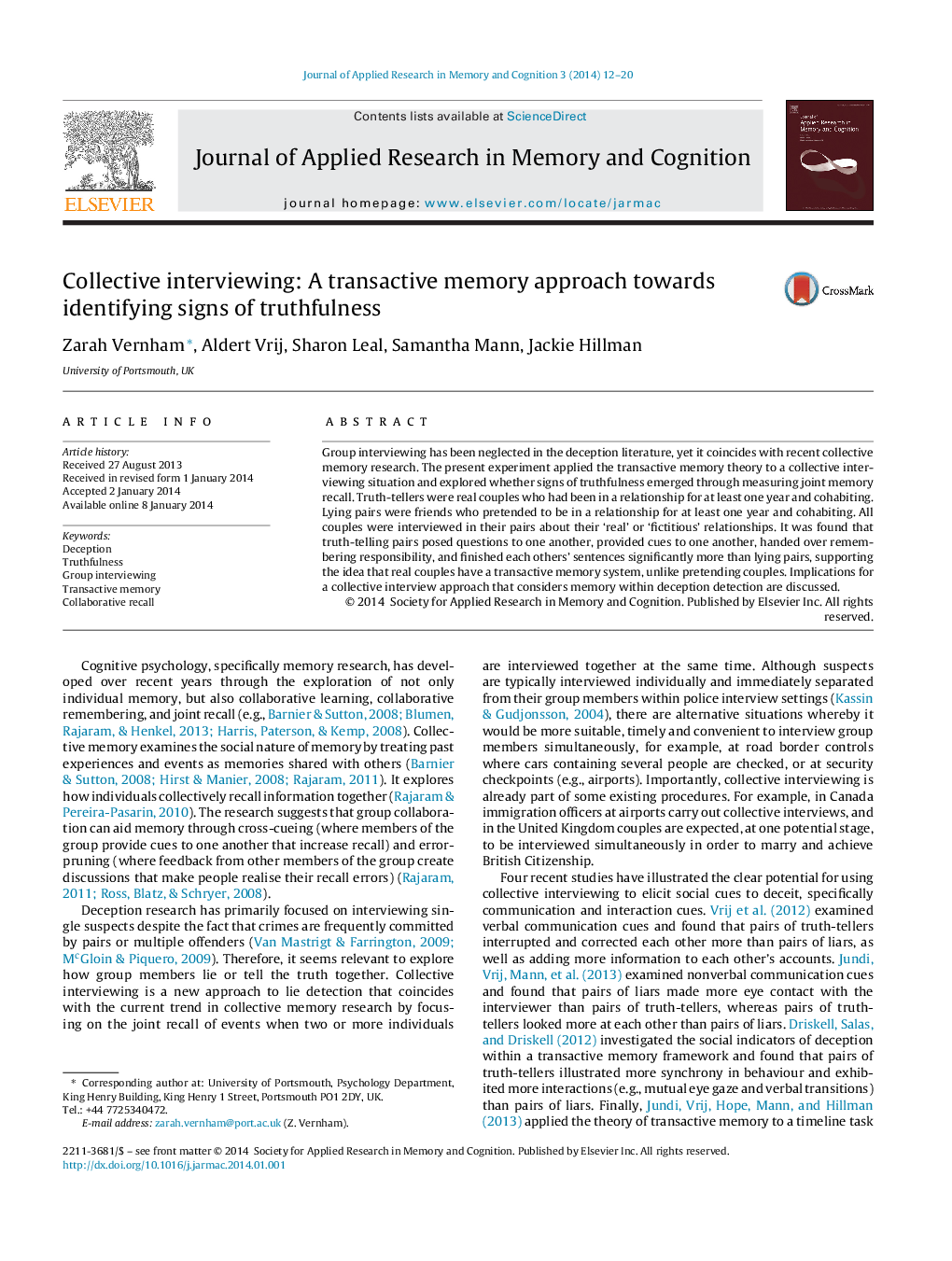| Article ID | Journal | Published Year | Pages | File Type |
|---|---|---|---|---|
| 10437189 | Journal of Applied Research in Memory and Cognition | 2014 | 9 Pages |
Abstract
Group interviewing has been neglected in the deception literature, yet it coincides with recent collective memory research. The present experiment applied the transactive memory theory to a collective interviewing situation and explored whether signs of truthfulness emerged through measuring joint memory recall. Truth-tellers were real couples who had been in a relationship for at least one year and cohabiting. Lying pairs were friends who pretended to be in a relationship for at least one year and cohabiting. All couples were interviewed in their pairs about their 'real' or 'fictitious' relationships. It was found that truth-telling pairs posed questions to one another, provided cues to one another, handed over remembering responsibility, and finished each others' sentences significantly more than lying pairs, supporting the idea that real couples have a transactive memory system, unlike pretending couples. Implications for a collective interview approach that considers memory within deception detection are discussed.
Related Topics
Social Sciences and Humanities
Psychology
Applied Psychology
Authors
Zarah Vernham, Aldert Vrij, Sharon Leal, Samantha Mann, Jackie Hillman,
